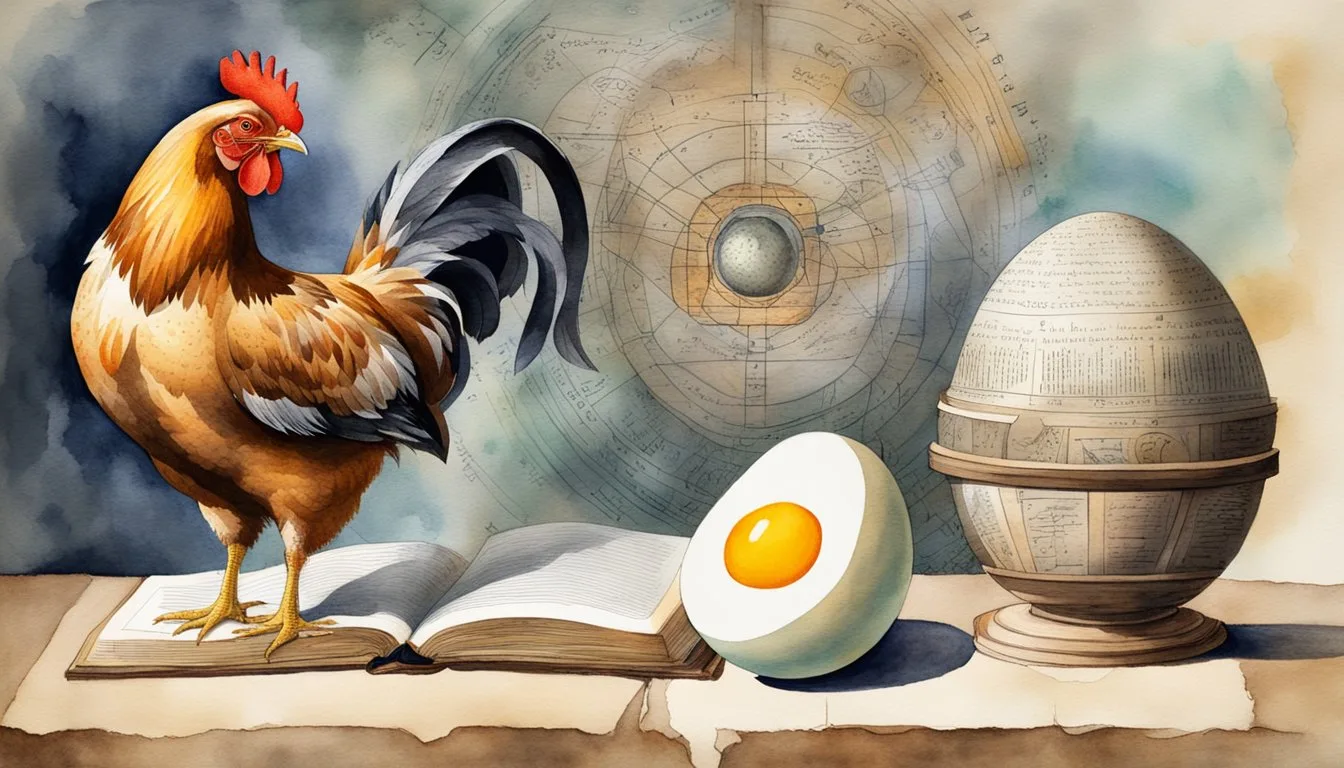The Evolution of Chicken and Egg
The debate about what came first, the chicken or the egg, intertwines complex biological evolution with a history of philosophical inquiry.
Biological Roots and Species Evolution
The species Gallus gallus, from which modern chickens are descended, has roots deeply embedded in evolutionary history. These birds evolved from junglefowl native to Southeast Asia and their domestication process began over 10,000 years ago. The concept of an egg predates chickens, with the first amniotic eggs appearing over 300 million years ago in reptilian ancestors, suggesting that the egg form was already present long before chickens appeared. The transition from a proto-chicken to the first chicken was a gradual process influenced by genetic mutations, possibly including changes to a protein called ovocleidin-17, essential in forming the egg’s calcium carbonate shell. The red junglefowl, or Gallus gallus, eventually gave rise to Gallus gallus domesticus, the domestic chicken, through selective breeding and natural genetic changes.
Philosophical and Historical Perspectives
The question of “which came first, the chicken or the egg?” has persisted for millennia, with thinkers like Plutarch and Aristotle contemplating it as a philosophical and logical dilemma. It was addressed as an issue of causality and origins, invoking broader inquiries into the nature of life and the universe. Historical perspectives have framed this question within the broader context of life’s interrelatedness, challenging scholars and researchers to consider the complexity and nuances inherent in evolutionary biology.
Is the Debate Over the Chicken or the Egg a Repeated Question Throughout History?
The debate over the chicken or egg has puzzled philosophers and scientists for centuries. This timeless question explores the origins of life and causality, sparking discussions in various cultures. Its enduring relevance highlights humanity’s quest to understand existence, making the chicken or egg a symbol of life’s cyclical nature.
Cultural and Scientific Relevance

The debate on whether the chicken or the egg came first spans both cultural realms and rigorous scientific inquiry, weaving philosophical thought with biological evolution.
Cultural Impact and Common References
Throughout history, the chicken or the egg question has served as a lighthearted yet profound conundrum. It has engaged philosophers like Macrobius and modern communicators like Neil deGrasse Tyson in debates that use the chicken and the egg scenario to discuss cause and effect. Literature, art, and even everyday language reference this timeless puzzle, symbolizing the mysteries and circular arguments encountered in life.
Scientific Explorations and Explanations
In the realm of science, the chicken or the egg query prompts examination into evolution, species development, and genetic mutations. The scientific consensus points to eggs predating chickens by millions of years, with amniotic eggs likely evolving around 325 million years ago. Inside these eggs, embryos developed the genetic makeup necessary for survival long before the advent of the modern chicken, Gallus gallus. As evolutionary history progressed, a proto-chicken laid an egg containing a mutation that, over generations, gave rise to the first chicken. This evolutionary milestone was facilitated by proteins like ovocleidin-17, crucial in the chicken’s ability to form the hard shells composed of calcium carbonate. Through this lens, speciation and the intricate dance of DNA are made visible in the story of the chicken and the egg.

